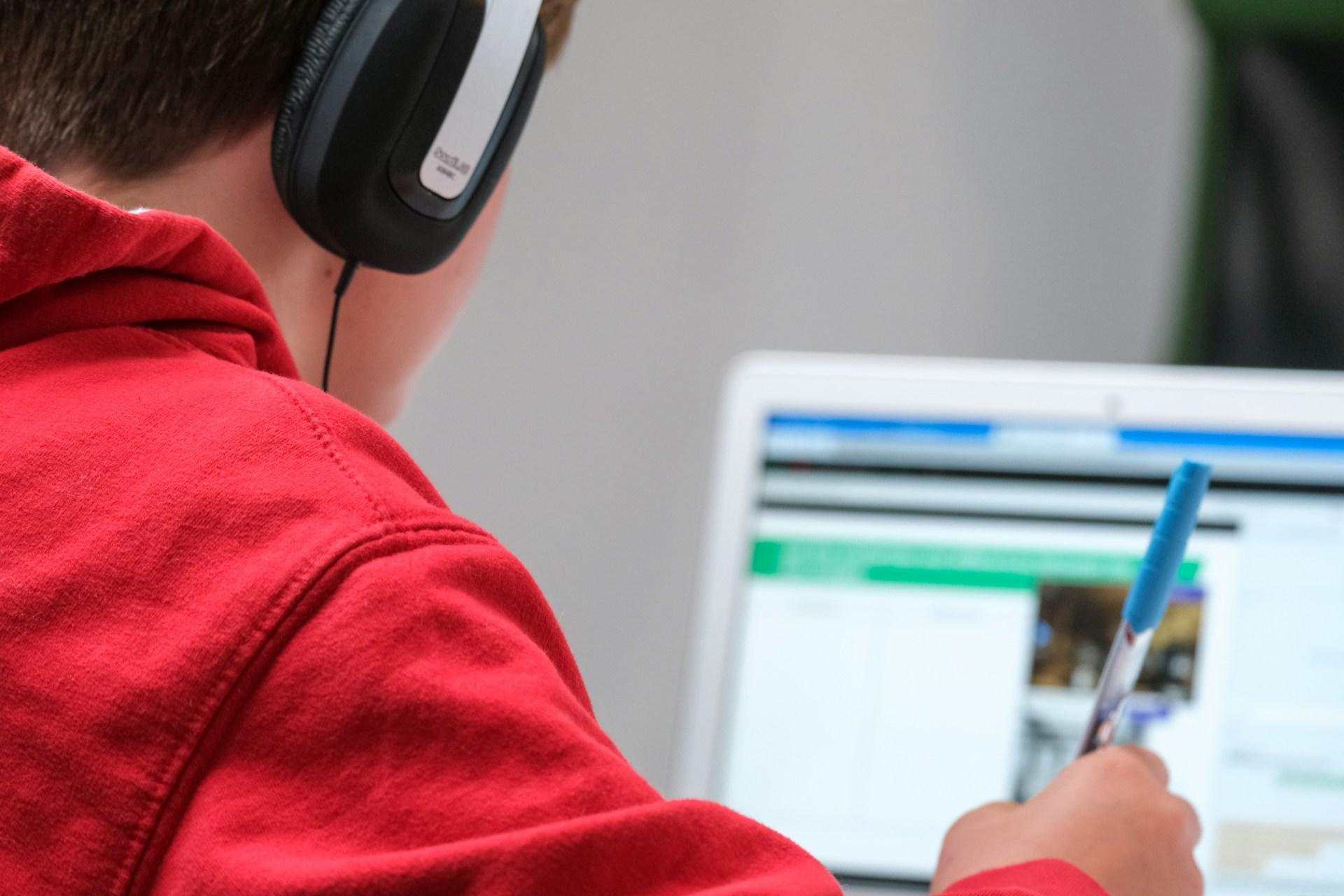Have you ever wondered if it is possible to master Korean without the help of a private tutor? The answer is yes. Learning Korean alone can be a rewarding and viable experience, but you need the right resources and a well-planned strategy and guidelines to learn to speak Korean.
In this article, we will guide you through simple steps to help you learn Korean independently.

How can you self-study Korean?
In the following section, you will find everything you'll need to fall in love with the Korean language. We will explore various methods to help you start your Korean learning journey without a tutor. Discover how to achieve your language goals independently:
1. Set your Study Objectives
Remember that we cannot get different results if we always follow the same procedure. If you want to start practicing Korean, setting goals through the SMART technique is key. Each letter in SMART will represent a fundamental aspect of your goals and how to achieve them:
- S - Specific: Your goal in learning Korean should be clear and defined. Instead of saying, "I want to be fluent in Korean in 1 year", you can say, "This first month, I will focus on learning Hangul."
- M - Measurable: You should be able to quantify your progress and success, whether in terms of grades, study hours, or any other relevant indicator. For example, you may evaluate your progress by taking a test once every two weeks or once a month.
- A - Achievable: Your goal should be realistic and achievable with the resources and time available. Don't set goals that are impossible to achieve. For example, instead of saying, "I will write a Korean drama in one year," you can focus on learning how to form Korean syllables, words, and phrases.
- R - Relevant: A relevant goal aligns with your bigger picture and has meaning to you. For example, if your goal is to prepare for the TOPIK test, memorizing new vocabulary may be less convenient than learning to solve each exam section correctly.
- T - Timed: You should set a deadline for achieving your goal. This gives you a sense of urgency and helps you stay focused. For example, you have to take the TOPIK. You should first learn how each test section is designed rather than just focusing on solving grammar exercises.

2. Establish an Action Plan
Once you have defined your study goals, we recommend breaking them down into achievable weekly or daily tasks, including reading, writing, listening, and speaking activities. Also, establish a regular study schedule, review your progress periodically to adjust your action plan, and find the best resources for learning Korean.
3. Use Online Resources and Apps
Don't waste any more time and start studying Korean by using popular and practical apps, such as Duolingo and Memrise, through which you can access interactive lessons and even dynamic activities to improve your vocabulary and grammar. We also recommend you visit Korean learning websites such as Talk to Me in Korean and How to Study Korean, where you will find more structured lessons and practical exercises.
4. Immerse yourself in the Korean Culture
What better way to get started in a language you are curious about than by delving into its culture through your PC or mobile? You can find excellent Korean K-dramas and movies through streaming platforms like Netflix and Amazon Prime.
Also, through channels like YouTube, you can find everything from popular Korean influencers and celebrity channels to Korean cooking or K-beauty shows. Or, for example, you can search for Korean classes in Toronto for a total immersion experience.
5. Learn the Art of Mastering Hangul
When learning Korean, you must be ready to pay attention to the basics of the language and build a solid knowledge of it to move forward. When speaking of the basics of the Korean language, we mean learning the Korean alphabet, also known as Hangul.
Hangul is the native Korean alphabet and is a phonetic system where the letters represent sounds. Although it may appear intimidating initially, learning Hangul is relatively straightforward compared to many other writing systems. And it is essential to have a good knowledge of it as you begin your Korean-practicing journey.

6. Explore Textbooks for Beginners
Exploring textbooks for beginners is essential to begin practicing Korean or any language. Textbooks provide a solid structure and logical progression to facilitate learning, testing, and problem-solving. These books are designed to guide any learner through the basics of the language regardless of proficiency level.
To learn the Hangul alphabet, pronunciation rules, grammar, and vocabulary, you can rely on textbooks such as Korean Made Easy by Darakwon, Korean Grammar in Use by Sejong Korean Language Institute, or "Korean Writing Practice Book" by Study Habits Korea are excellent examples for your daily practice.
7. Practice with Podcasts and Audiobooks
Podcasts open up a range of possibilities for learning new languages, as you can find a wealth of content suitable for all levels of Korean and all ages. The Talk to Me in Korean or Learn Korean podcasts from KoreanClass101 are excellent examples of practicing Korean. Also, don't rule out using Korean audiobooks available on Google Play Books to practice listening comprehension.
8. Shy Out and Practice with Native Speakers
Practicing Korean with native speakers is a brilliant idea, as you can learn more about the context, the culture, and the dynamics of the country. You can find native Korean speakers through social networks, online forums, applications, and Korean language centers to learn Korean.
The more you immerse yourself in the language and practice regularly, the more natural, confident, and fluent your Korean will become. Without a doubt, practicing with native speakers will help you gain fluency and confidence in the language.
Can I learn Korean by myself?
Learning Korean on your own is possible if you have the right resources. Many people have managed to master a language without the help of private Korean lessons. Here are some reasons why it is possible:
- Tons of study resources: Thanks to the abundance of language learning resources available at the click of a button, you no longer have an excuse not to start studying Korean. From hundreds of applications, tools, and online platforms, finding the resources that make learning Korean on your own easier is now easier than ever.
- Flexibility of study: One of the main advantages of learning independently is flexibility. Through self-study, you will be free to set your schedule and determine the pace of your studies, depending on your goals and availability, without feeling overwhelmed by attending a class schedule.
- Personalized Pace: Studying at your own pace allows you to adapt to your learning needs and organize your study time according to your availability and energy. If you are currently working or studying, planning a sustainable strategy to practice Korean actively in the long run is crucial.
- Focus on Personal Interests: If you are passionate about K-pop music and Korean dramas or curious about their cuisine and culture, learning according to your interests can be a more rewarding experience and an effective strategy for maintaining motivation. However, success often requires hard work, even when we are not passionate about learning specific topics.
- Autonomy and responsibility: Learning Korean by yourself allows you to take charge of your learning process, set your goals, and develop a personalized study plan that suits your needs. However, you should be aware that by taking the reins of learning Korean, you are solely responsible for setting your language objectives and action plans to achieve your goals.
In short, learning a language on your own is possible and always has advantages. However, you must know that it requires discipline, motivation, and access to the right learning resources.


How long does it take to learn Korean by yourself?
The time it takes to learn Korean on your own can vary depending on several factors, such as the time you devote to study, the quality of the resources you use, and the consistency of your practice.
For example, if you are a beginner learner of Korean, reaching a basic level (basic grammar and vocabulary) can take about six months to a year with intensive study, at least one hour a day. To advance to an intermediate level, where you can carry on conversations with more complex vocabulary and grammatical structures, it may take 1 to 2 years of diligent study.
The key will always be constant immersion in Korean and remembering that learning a language is a continuous process, especially when acquiring a second or third language. Motivation, patience, and dedication will always be essential to mastering Korean.
What's the quickest way to learn Korean?
Self-taught education is viable if motivation, dedication, and adequate resources are available when learning Korean. However, if you encounter obstacles on your way to success, you can always find private tutoring in Canada, whether you are searching for Korean classes in Montreal or Vancouver.
Whether you need help learning the correct pronunciation of Korean, feel you still need to grasp the Hangul language fully, or need assistance reading simple Korean texts, find the help you need with Superprof.
Superprof is an excellent online private tutoring platform where you will find the perfect Korean tutors to motivate you in your Korean language self-learning journey. Moreover, you can always choose from the tutors available on the platform to suit your study goals, budget, and availability, no matter where you are in Canada.

Wrap Up!
Having the right resources and a well-planned strategy to learn Korean independently. Setting goals, creating a plan of action, and using online study resources are some strategies to gain fluency and progress in the language. Learning Korean independently is always possible with discipline, motivation, and the right resources. Still, finding the benefits of hiring suitable Korean tutors in Canada will undoubtedly boost your learning.
Summarize with AI:















